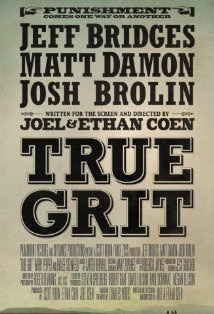 Clever image, eh? For indeed the sands of Blue John Canyon seemed to mark the evaporating time in the hourglass of one Aron Ralston's life.
Clever image, eh? For indeed the sands of Blue John Canyon seemed to mark the evaporating time in the hourglass of one Aron Ralston's life.What makes a good film? This one defies some of the traditional elements. For example, we all already know what happens, how it ends, and there is essentially only one character in one immovable scene. But put the raw ingredients in the hands of one brilliant director, Mr. Danny Boyle (Slumdog Millionaire), and "life as art" takes shape.
Ralston's true-life horror of getting his arm wedged between a boulder and canyon wall in the deep crevasse of the magnificent, but desolate Blue John Canyon in Utah, became international news when he eventually had to sever his own arm to save his life. But you know all that, so I will not bore you with the facts.
Let's talk film-making.
Boyle couldn't choose his setting; he just got lucky. But his direction vividly captures the spectacular work of Mother Nature in her wind-smoothed stone, sand, water, making the setting truly another major character.
His choice to have James Franco play A.R. was a wise one. Is there any type of role Franco can't play - his versatility is really shining lately. As he had to work the range from affable, charming, grab-at-life young man, to one facing an early death due to carelessness on a couple of points, I believed him in every frame of this film. He carried this one-man show with incredible focus.
Boyle resisted the cliched approach of constantly flitting between Ralston's experience and family and friends at home wondering, worrying. After all, this is HIS story, based on his best-seller, Between a Rock and a Hard Place. No distractions here. Like him, we are trapped for the duration.
It also avoided Hollywood-esque sentimentality, religious overtones, and morality milking.
Some very effective original scoring here, along with sound engineering that truly added to the art (such as that high-pitched metallic ping as he cuts nerve).
Put in the hands of a thinking director, even this very simple story draws to greater themes, as the movie speaks to us about relationships and man's need for others. Ralston is clearly a loner, but not the stereotypical bitter, anti-social kind. He seems kind, generous, loving. He seems to like people; just doesn't need them, really. We understand his need to get away from this crazy-paced rat race. Yet however independent and skilled and resourceful he was, he almost met his demise by isolating himself from the basic prerequisite of letting others into his life enough to let them know where and when he would be. His flashbacks through those five days of horror ALL rested within his relationships - family, friends, lover. And what propelled him to commit his final life-saving act of barbarity was a vision of a son-to-be. Wow.
What brought me to tears was his dramatic reach to three hikers, then two others, then rescuers. It's that communion of humanity.
John Donne said, "No man is an island, entire of itself." We need each other. Not just in times of distress, but to weave the fabric of a lifetime.
Mr. Ralston is now married and has...a son.
When R
 alston's book came out, my younger son read it and it had an enormous impact on him. He even met Aron and had his copy signed. I showed the 2-hour NBC special on Ralston's experience many times to my senior classes under the excuse of their cause-and-effect essay assignment. I knew his story of courage and fortitude would inspire. The young men in class, in particular, were always very moved.
alston's book came out, my younger son read it and it had an enormous impact on him. He even met Aron and had his copy signed. I showed the 2-hour NBC special on Ralston's experience many times to my senior classes under the excuse of their cause-and-effect essay assignment. I knew his story of courage and fortitude would inspire. The young men in class, in particular, were always very moved.127 Hours is one of this year's Oscar nominees (for Best Picture,) as is Franco. Boyle is not. Huh? But of the 10 picture nominees, which ones will stay with me for a long, long time? 127 Hours is one that will.






